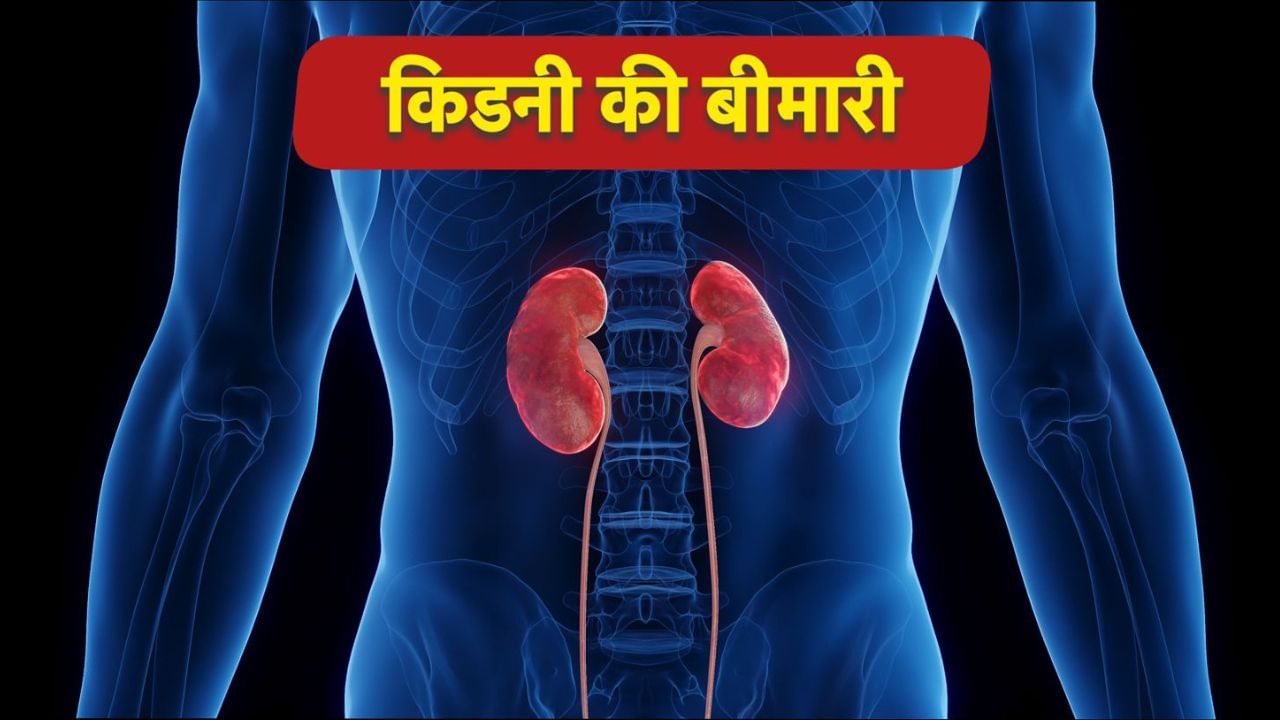chronic kidney disease Image Credit source: Getty Images
Chronic kidney disease (CKD) is a serious condition in which the kidneys gradually stop functioning and the ability to remove toxic elements from the body decreases. The Lancet published in Global Burden of Diseases 2023 According to the study, around 788 million or 78 crore people worldwide are affected by CKD. 1 out of every 10 people has this disease, but most are not aware of it. In India, 138 million i.e. 13.8 crore people are suffering from it, due to which India is in second place in the cases of CKD. This disease has doubled in the last three decades.
According to the Lancet report, the main causes of CKD are diabetes, high blood pressure, obesity, poor diet and pollution. Due to high sugar and blood pressure levels for a long time, the nerves and filters of the kidneys gradually become weak. Also, the kidney capacity gradually reduces and it is not able to remove toxic substances from the body properly. Its initial symptoms are very minor, such as fatigue, swelling of the legs or face, loss of appetite, foam in the urine, or frequent urination. Often people ignore these symptoms considering them normal, due to which the disease progresses.
Why are most people not diagnosed with CKD?
Chronic kidney disease is called a silent killer because this disease keeps damaging the body gradually without any specific symptoms. In the initial stages, there is no pain in the kidneys and things like general fatigue, lack of sleep or weakness seem normal to the person. For this reason people do not get tested and the disease continues to grow unknowingly.
The second reason is lack of awareness. In such a situation, people think that kidney testing is necessary only when any major symptoms are seen, whereas in reality, CKD can be detected in the early stages through blood and urine tests.
Apart from this, patients with diabetes and blood pressure do not get regular kidney tests done, which gradually leads to damage. Symptoms appear only after 60-70% of kidney capacity is lost, by then treatment becomes difficult, that is, the problem is not only of the disease but also of not being identified on time. This is why the Lancet study has recommended routine kidney screening across the world so that people can take precautions in time.
How to protect?
Get your blood pressure and sugar level checked regularly.
Take a balanced and low salt diet.
Drink enough water and avoid processed food.
Stay away from smoking and alcohol.
If someone in the family has kidney disease, then get kidney function test done from time to time.
Adopt regular exercise, weight control and healthy lifestyle.
